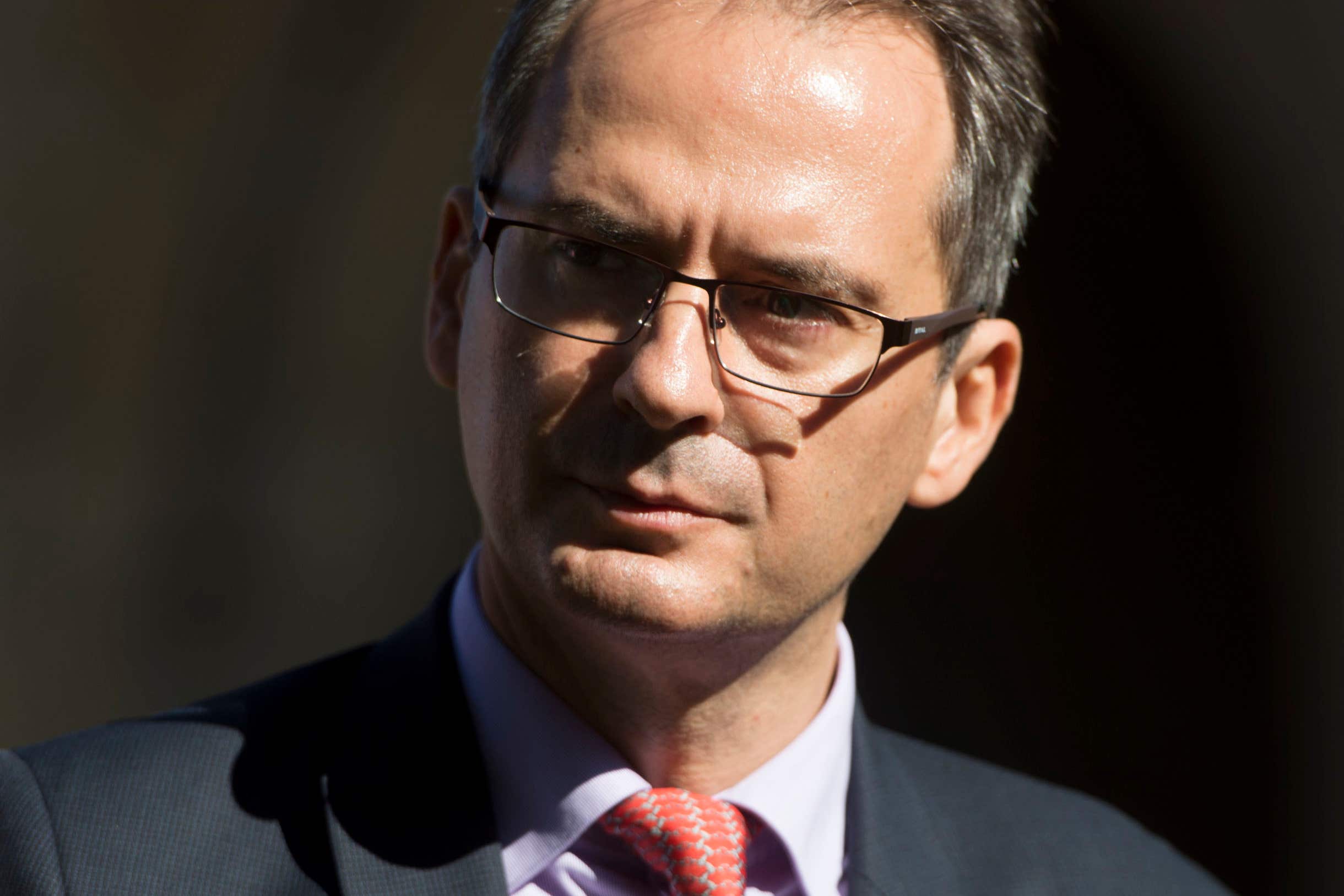Navalny filmmakers dedicate Bafta to ‘security risk’ journalist Christo Grozev
The producer of Navalny said Mr Grozev ‘gave up everything to tell the story and many other stories that need to be told’.

Your support helps us to tell the story
From reproductive rights to climate change to Big Tech, The Independent is on the ground when the story is developing. Whether it's investigating the financials of Elon Musk's pro-Trump PAC or producing our latest documentary, 'The A Word', which shines a light on the American women fighting for reproductive rights, we know how important it is to parse out the facts from the messaging.
At such a critical moment in US history, we need reporters on the ground. Your donation allows us to keep sending journalists to speak to both sides of the story.
The Independent is trusted by Americans across the entire political spectrum. And unlike many other quality news outlets, we choose not to lock Americans out of our reporting and analysis with paywalls. We believe quality journalism should be available to everyone, paid for by those who can afford it.
Your support makes all the difference.The filmmakers behind Navalny have dedicated their Bafta documentary award to investigative journalist Christo Grozev.
Bulgarian Mr Grozev, who features in the documentary about Russian opposition leader Alexei Navalny and events related to his 2020 poisoning, claimed before the ceremony he and his family were not allowed at the event due to being a “security risk”.
At the ceremony, producer Odessa Rae said: “We want to dedicate this award to Christo Grozev, our Bulgarian nerd with a laptop, who could not be with us tonight because his life is under threat by the Russian government and (president) Vladimir Putin.
“I met Christo in the summer of 2020. His life is fairly private then and he gave up everything to tell the story and many other stories that need to be told.”
Mr Grozev subsequently tweeted: “Wow.”
The lead Russia investigator with Bellingcat – an investigative journalism group specialising in fact-checking and the use of open source intelligence and social media investigation techniques – Mr Grozev had tweeted on Friday that he was “surprised” to be “banned” and told he represented “a public security risk”.
He added that this shows “growing dangers to independent journalists around the world” not just from “murderous dictators, but also from having journalists’ voices hushed”.
During the film, Mr Grozev explains how he and fellow investigative journalist Maria Pevchikh revealed the details of the poisoning plot that indicated involvement from Russia.
The Metropolitan Police said police forces generally “do not and cannot” ban individuals from events and this was the responsibility of organisers.
The force added that it could not comment on the safety of an individual or advice given to them, but that it was “absolutely concerned” with the “hostile intentions of foreign states” on UK soil.
It added: “However, the situation that journalists face around the world and the fact that some journalists face the hostile intentions of foreign states whilst in the UK is a reality that we are absolutely concerned with.
“We are committed to working with our intelligence partners to investigate these threats and to take other steps to ensure the safety of those concerned.”
The Met added: “Despite our efforts, on protective security and on investigations, we recognise the impact of those threats on those affected.
“The responsibility for such threats and their potential impact on the wider public lies with the hostile state actors behind them and we have significantly increased the resources applied to bearing down on those.
“We recognise that our advice can mean organisers have difficult choices to make when deciding how best to mitigate any risks to the security of their event, and we are grateful for the ongoing engagement of Bafta.”
Before the ceremony, Bafta said: “The safety of all our guests and staff at the ceremony is always our highest priority, and we have robust and appropriate security arrangements in place every year.”
Tory MP and chairwoman of the Foreign Affairs Select Committee Alicia Kearns also tweeted earlier: “I’ve raised with ministers – you are not the security risk.”
Speaking in the Bafta winner’s room, Russian investigative journalist Maria Pevchikh called on the Kremlin to free Navalny and all political prisoners.
She said: “The message to the Kremlin is that they have to free Navalny and all political prisoners immediately and stop the war immediately as well.
“And before Navalny went to prison I promised him that I would spend the time while he’s in prison climbing on the highest chair, the highest mountain and shouting and screaming his name and making sure that people don’t forget about what he has done for my country.
“And I think that tonight’s stage has been a mountain pretty high I’d say to say his name from the stage. It’s a great honour and a great privilege and let’s all remember that while we’re having this great evening tonight, that many people are sadly spending these days in prison, just because one corrupt KGB man decided to overtake a great country.”